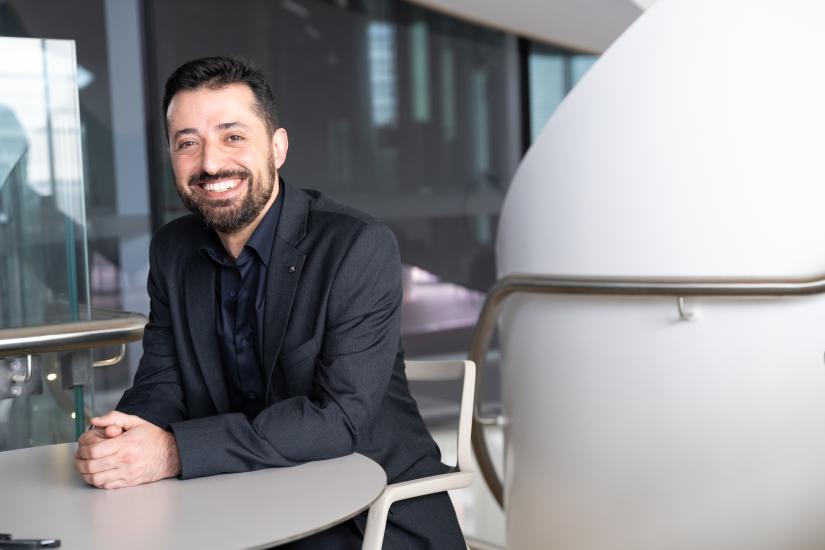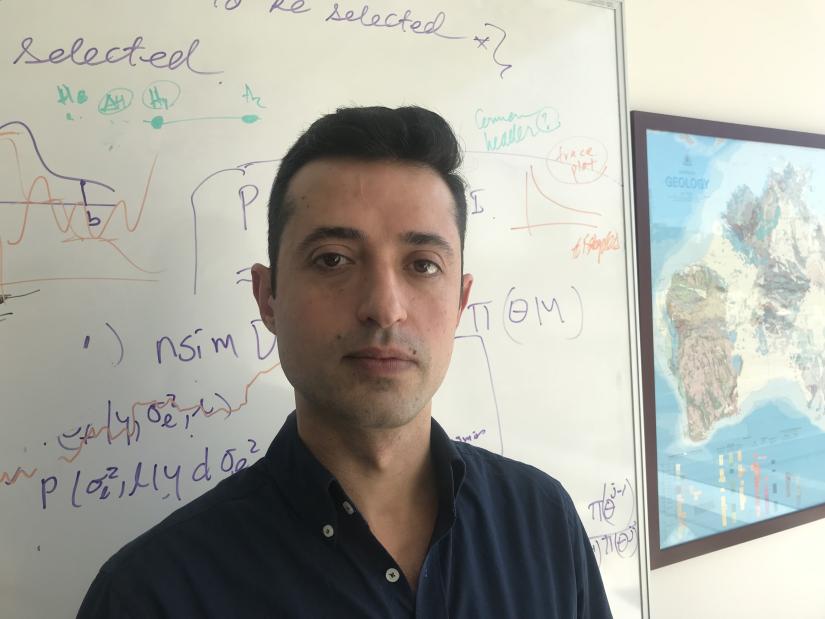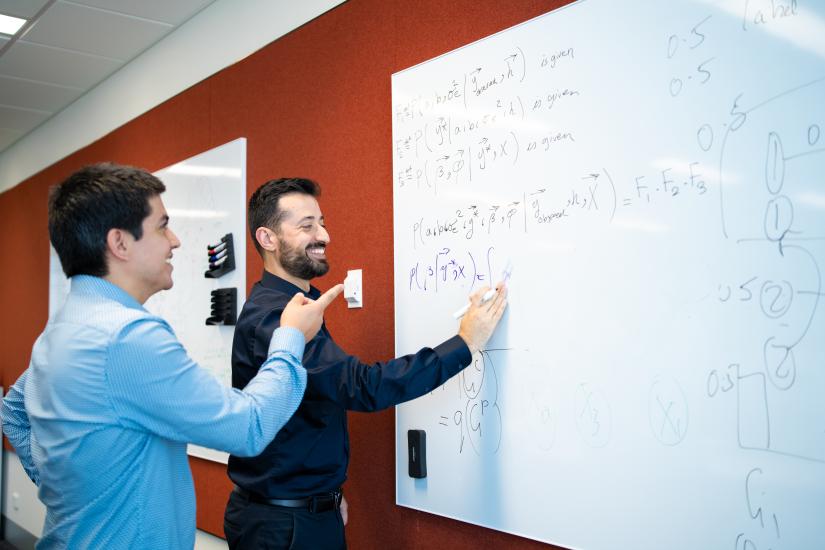Hadi Mohasel Afshar is HTI's Thrive Lead Research Scientist, and stars in our latest Staff Spotlight.
As the Thrive team’s Lead Research Scientist, Hadi works on the mathematics behind AI algorithms to make sure they are explainable and transparent, and therefore fair.
He grew up developing video games for his brothers and sisters to play and his fascination for AI from very young age led him to eventually study machine learning, after studying electrical and computer engineering in Iran.
Hadi is our latest Staff Spotlight.

Hadi Mohasel Afshar, Thrive Lead Research Scientist. Picture by Kwa Nguyen
Early interest in AI
Hadi grew up in Kerman, a city of around one million people in the geographical south-east of Iran. He started computer programming in high school, and would encourage his brother and sister to play the video games he had developed.
“Once I had written a game in which some snakes were meant to chase and eat each other, but sometimes they would fall in an equilibrium and start dancing around each other. They were making such complicated and beautiful patterns that I couldn't even think of,” Hadi said.
So I thought to myself, I've written a program that does something that I couldn't even think of, and that's what I want to do for the rest of my life. That's how I became interested in AI. - Hadi Mohasel Afshar, HTI's Thrive Lead Research Scientist
However, despite his interest in AI, Hadi ended up studying electrical and computer engineering and completing a Master’s in Engineering. It was after he moved to the UK and worked as a system developer that his interest in AI was renewed.
“I realised that I am not much interested in web/database development... the things that I am interested in, other system developers don't like them— all the maths and algorithms and everything. Nobody wanted to work with them. They would give them to me, and I would happily work on them."
“And that's how I decided to get my PhD in the machine learning and AI, and come back to my high school dream,” Hadi said.

Hadi pictured at a younger age. Photo supplied by Hadi Mohasel Afshar
Move to Australia
Hadi was awarded a scholarship to complete a PhD in computer science-machine learning and AI from Australian National University in Canberra and made the move to Australia.
He then moved to Sydney and worked for company called Voicebox, where he was working on transformer networks, which Hadi says are, “basically the architecture of the modern large language models that recently have become so popular.”
Hadi then got a job at University of Sydney, where he focused on theoretical machine learning and explainable machine learning, supported by strong mathematics.
Those large language models — I was working with them from 2015 to 2019 — the problem that they have is that they are not explainable, even though they do amazing things, but you don't know if they are fair. There are several issues that can be caused by them, and I felt the necessity to combine them with more explainable methods which have a solid mathematical foundation. That's why I moved in this direction. - Hadi Mohasel Afshar, HTI's Thrive Lead Research Scientist
Hadi joins HTI
This is where Hadi began working with fellow HTI staff Sally Cripps, Roman Marchant and Gilad Francis, and he moved to HTI with them in 2023 to work on the mathematics behind AI algorithms to make them transparent.

Hadi (right) pictured with HTI colleague Roman Marchant. Picture by Kwa Nguyen
“We are in a very interesting time. 30 years ago, when I was at high school, AI was something that nobody had heard of. And, and in that time, the question that was motivating me was how to make artificial intelligence. Now it's a time that artificial intelligence is made, but the consequences and effects of it are unknown and promising, but at the same time quite frightening. So that's where institutes like HTI put the technology and the human on the two sides of a balance, and try to basically come up with the solutions for this paradigm, how can we make technology be used in good ways, while preventing its bad side effects.”
While many of us would find Hadi’s work hard to understand and it can be hard work, he says that sometimes in lucky moments the mathematics reveals itself, which is a highlight of his work.
Sometimes you make a model, and...the mathematics shows itself and completes itself. So you start an idea, but after a while, you become a discoverer, rather than inventor...and then something way more coherent and beautiful than what you were thinking just shows itself. You know, just parts match together like a puzzle. So those moments that...the mathematics is completing itself are very, very beautiful. - Hadi Mohasel Afshar, HTI's Thrive Lead Research Scientist
Outside of work, Hadi has an interest in philosophy, literature and languages, and is able to speak several languages in addition to English and Persian.
“Language is interesting because these are the pure product of mind. It's not an adaptation to anything, so it's interesting. It shows, it reveals some characteristics of thinking and mind,” he said.
“So I know French, a little bit of Spanish, a little bit of German, a little bit of Arabic, a little bit of Azeri, a little bit of Parthian and Avestan which are extinct languages, and Persian, which is my mother tongue”

